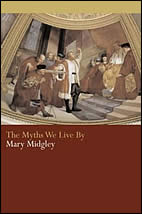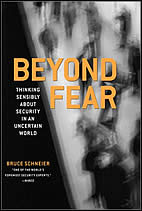En estos momentos estoy traduciendo Azogue, libro primero del Ciclo Barroco, de Neal Stephenson (autor, entre otras, de Criptonomicón y La era del diamante). Azogue se publicará en tres volúmenes a partir del año que viene. Es un libro apasionante, porque trata del origen de la ciencia moderna, de la Royal Society, de Newton y Leibniz (que se pase por el Londres de la Restauración con su ordenador portátil). También aparecen muchos otros personajes históricos como John Wilkins (supuesto autor de un libro sobre cifras llamado Criptonomicón), Robert Hooke, Locke, Boyle o Pepys. El libro arranca con Enoch Root en Boston, buscando a Daniel Waterhouse -quien fue compañero de cuarto de Newton- ahora retirado en América y fundador del Instituto de Artes Tecnológicas de las Bahía Colonial de Massachusetts. Resulta que la princesa Carolina de Ansbach le ruega que regrese a Europa para interceder en la polémica entre Newton y Leibniz que amenaza con destruir la naciente ciencia europea. Durante el viaje, Daniel va recordando sus primeros encuentros con esas grandes figuras. Más o menos como su descendiente haría posteriormente en Criptonomicón con gente como Alan Turing.
Pero a lo que iba. Yo pensaba que el Ciclo Barroco era un título genérico que incluía a Criptonomicón y a una futura novela posterior que transcurriese en el futuro. Pero resulta que no, que el Ciclo Barroco es una obra completa en sí, formada por tres libros, de algo menos de mil páginas cada uno en su edición original, y que en conjunto forman una especie de antecedente a Criptonomicón. Los títulos serían: Azogue, The Confusion y The System of the World (en Estados Unidos se publicarán al estilo Matrix, en intervalos de seis meses).
Es decir, ¡Stephenson ha escrito como una novela de 3000 página! Se lo imaginan, ¡tres mil páginas de Stephenson! La cabeza ya me da vuelta.
Aquí va una entrevista con Neal Stephenson donde da más detalles de los libros.
Mi pregunta, ¿nos falta todavía la novela ambientada en el futuro que continúe Criptonomicón?
[Estoy escuchando: «Promise» de Violent Femmes en el disco Violent Femmes]

 Formas de pensar. Símbolos. Mitos. Aproximaciones al mundo que no discutimos porque nos parecen evidentes. Metáforas. En cuanto uno reflexiona, son fáciles de identificar, pero en ocasiones su influjo es tan poderoso que no sólo no podemos evitar emplearla, sino que condicionan nuestra actuación en el mundo.
Formas de pensar. Símbolos. Mitos. Aproximaciones al mundo que no discutimos porque nos parecen evidentes. Metáforas. En cuanto uno reflexiona, son fáciles de identificar, pero en ocasiones su influjo es tan poderoso que no sólo no podemos evitar emplearla, sino que condicionan nuestra actuación en el mundo. En nombre de la seguridad se están tomando muchas medidas. Algunas de ellas parecen razonables, otras no tanto y otras parecen no tener nada que ve con la seguridad y parecen más bien intentos de alcanzar otros objetivos invocando el miedo. Para empezar a evaluar esas medidas, y poder decidir cuándo son razonables y cuándo son producto de otros intereses, Beyond Fear. Thinking Sensibly about Security in an Uncertain World de Bruce Schneier parece un buen punto de partida:
En nombre de la seguridad se están tomando muchas medidas. Algunas de ellas parecen razonables, otras no tanto y otras parecen no tener nada que ve con la seguridad y parecen más bien intentos de alcanzar otros objetivos invocando el miedo. Para empezar a evaluar esas medidas, y poder decidir cuándo son razonables y cuándo son producto de otros intereses, Beyond Fear. Thinking Sensibly about Security in an Uncertain World de Bruce Schneier parece un buen punto de partida: